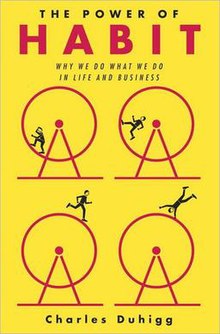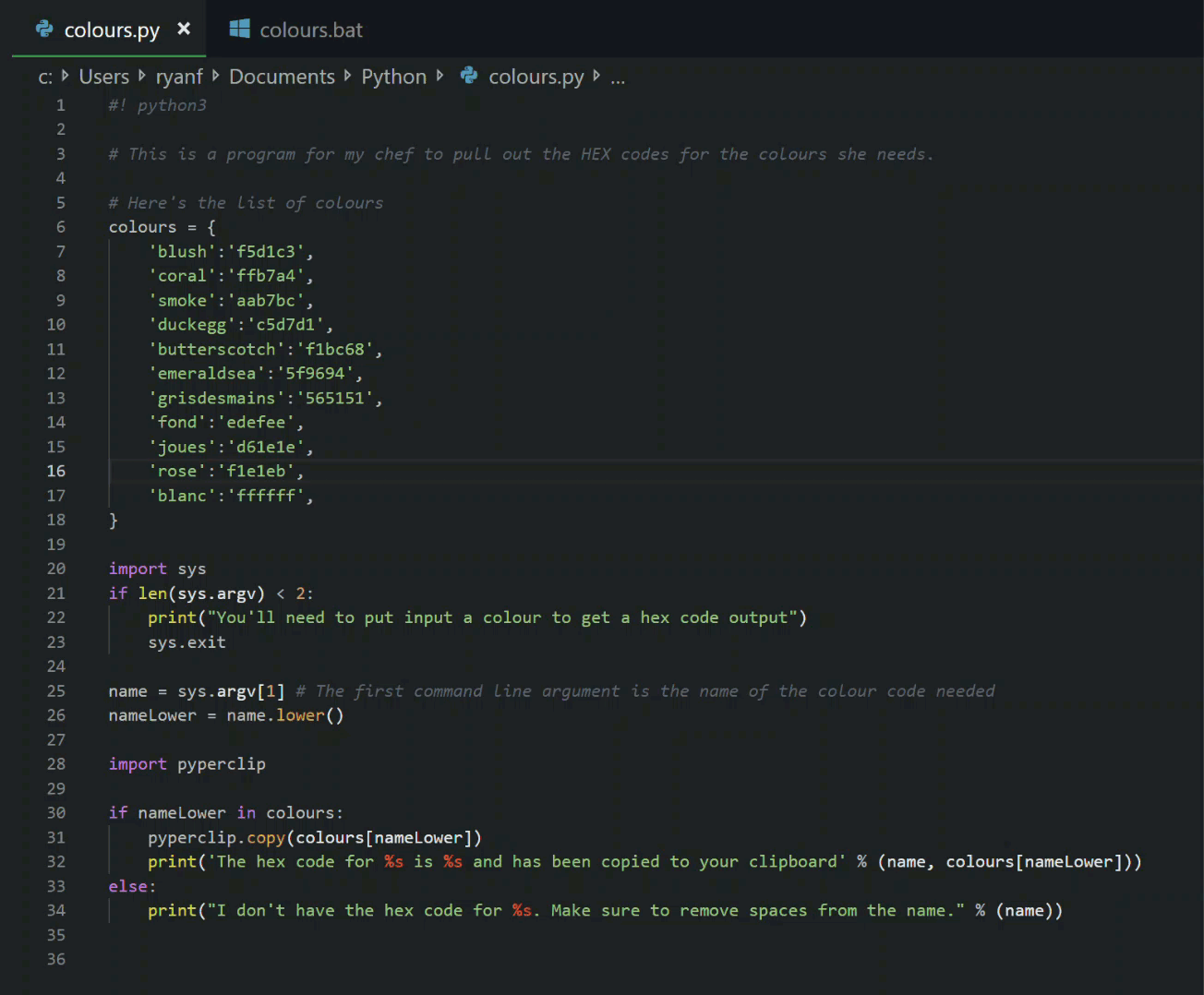Whilst I have no intention of making this blog about books and their reviews, I do like to read and feel it would be useful to note some things I learned from reading ‘The Power of Habit’ by Charles Duhigg. I feel these are relevant to my personal development.
In this post are a few things I learnt and will be trying to utilise to create some good habits and get rid of some bad ones.
I read purely for pleasure, as I think everyone should, and for me, reading ‘business books’ or personal development books is not pleasureable. However, every so often, I will find a book that you could put in this category that I can imagine enjoying. I really am all for personal development but in a purely personal sense and am excited by the idea that I could read something that will help me think better or be a more productive person. I might read three or four of these such books per year and when relevant, I will add my thoughts to this blog.
I believe that all reading aids in your personal development in some way. However, here are some of your more typical business or philosophy books I’ve read in the past that I think have helped my personal development.
- The Undoing Project by Michael Lewis
- Deep Work by Cal Newport
- Silence in the Age of Noise by Erling Kagge
- Walking by Erling Kagge
- Competing Against Luck by Clayton M. Christensen
- The Tipping Point by Malcolm Gladwell
- How to Win Friends and Influence People by Dale Carnegie
Now for what I have learnt from the Power of Habit.
What I have learnt
1. Cue, routine and reward
The book first illustrates that all habits are composed of these three things. A certain cue, leads to a routine which is driven by the reward at the end.
An example of this, and I’m using this example because I have found an image I can steal is pulling your phone out constantly in moments where you want to distract yourself. This is certainly a habit for me and one I’d be happy to remove. One way to break it down is as illustrated below.
- The cue is boredom or inactivity
- The routine is to pull out my phone and in my case touch the fingerprint scanner and feel it vibrate in my hand
- The reward is the vibration I get feel in my hand and the phone unlocking and then usually very little actual mental stimulation or distration given from the phone
I often find myself without internet while travelling and I find my phone boring to use. What is much more interesting is often just looking out the window of the bus I’m on or looking around the room I’m in or, failing that, pulling out my Kindle and reading something.
Cues apparently fall into one of five categories:
- Location
- Time
- Emotional state
- Last action
- Action of others
An example used in the book is wanting to go for a cookie at a certain time of the day whilst at work in the middle hours of the afternoon. It can also be waking up, getting home from work, someone doing something to you, watching tv, etc. A bad habit, mentioned above for me is pulling my phone out with no real idea why. Cues for this for me are normally boredom where the distraction is the reward, but a cue could also be putting a TV program on, where I need to work out what the reward is, because I don’t think I’m looking for a distraction. I know they say the attention span of today’s generation is smaller than it used to be but I don’t want to fall into this. I want to be able to put on a TV show and that be my event. It’s a first world desire and ridiculous that I need that second screen almost constantly. Only at the cinema do I currently seem to be able to focus on the one screen.
2. Craving

Duhigg also adds in this fourth element to the habit loop. Craving is the feeling we have when we start anticipating the reward at the end of a habit before we’ve even started the routine. An example from a good habit is for those that manage to develop a desire and a need to go for a run. I like to think I have had this at least at some point in my life. The craving is for the good feeling you get once you’ve been for a run or done some exercise. I might have kidded myself that I enjoyed running or working out, but I still 95% of the time would have happily stayed in bed or sat down on the sofa. However, then I wouldn’t have had that great endorphin infused feeling created by the exercise of having been productive.
In the book an example used was about an experiment done with a monkey whereby the monkey would receive a cue on a screen through which he learnt that if he then processed a routine, touching a button the screen, he would receive a reward, some grape juice.
At first, the monkey would experience a spike in pleasure when he received his grape juice. However, as it became a habit for the monkey, they discovered that the pleasure spike actually came before the reward itself, even before his routine. Once the monkey received his cue, he immediately anticipated the grape juice and felt a spike in pleasure, before even pressing the button. When denied his juice, the monkey was not pleased at all and they put this down to the craving the monkey had for his reward.
A no less primal example is the feeling we (at least I get) when we see a sign for fast food (McDonald’s is the example used in the book). Seeing those golden arches makes you think about getting your fast food and you start thinking about what it will be like already to have it. Before you’ve even decided to go for it. On the more positive scale of habits, getting home from work for some, it can make them desire that release they get from running. There are many examples of cravings and this can be what causes a habit to perpetuate and increase, until you’re going to get fast food or drinking a bottle of coke every day.
Drinking coke is a bad habit I’ve increased since travelling and one I intend on quelling.
3. Keystone habits
This is the belief that ‘small wins’ can create new habits. An example of this for me is simply ensuring I shower each day. When I don’t have to work and I’m planning a lazy day, the lazy day can almost become too lazy for me if I don’t get myself out of bed or off my phone. I have found that simply by showering, I find myself organising my lazy day between reading, watching a film, doing a little Spanish or writing something.
Other examples used in the book were how they asked struggling dieters to keep a food diary each day. This is an easier task that say not touching any unhealthy foods but keeping to this simple task meant that people were more likely to keep on track with their diet.
I know for myself, a less easy keystone habit was exercising a few times a week before work. When I did this I also found myself eating better or spending more time in the evenings being productive rather than doing nothing, even though doing nothing in the evenings is precisely why I wanted to exercise in the morning.
4. Willpower
Willpower is the explanation for why good habits are not infinitely perpetuating. Why even those that wake up four times a week regularly make struggle at some point and need a break.
Willpower is not finite. Studies were done by researchers testing humans ability to focus after some taxing events and found that those who had had a taxing event had less ability to focus on tasks than those that had had a pleasant time. This seems obvious and intuitive and it explains why some people burn out or need to have a cheat day. The takeaway from this part of the book for me (wrongly or rightly) is that you need to reward yourself and have days off. I am in no trouble of not rewarding myself enough but this part made me feel good about this.
Final thoughts
I just want to mention that I found the book insightful and easy to read. The book is split into three sections referring to habits in three different settings, in everyday people, businesses/organisations and then societies. I was less interested in the section on businesses and so skipped the last two sections of that chapter but found the book on the whole great and would recommend it as a useful book to read for anyone.
Another book I’ve seen mentioned alongisde this one is the ‘The Willpower Instinct’ which I’ve marked ‘Want to Read’ on Goodreads.
A link to the author’s website for the ‘The Power of Habit’ can be found here.







